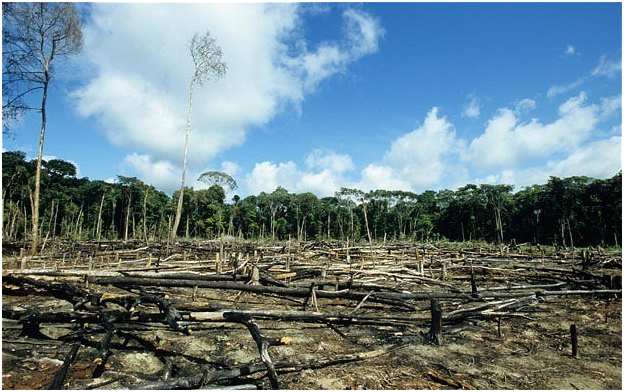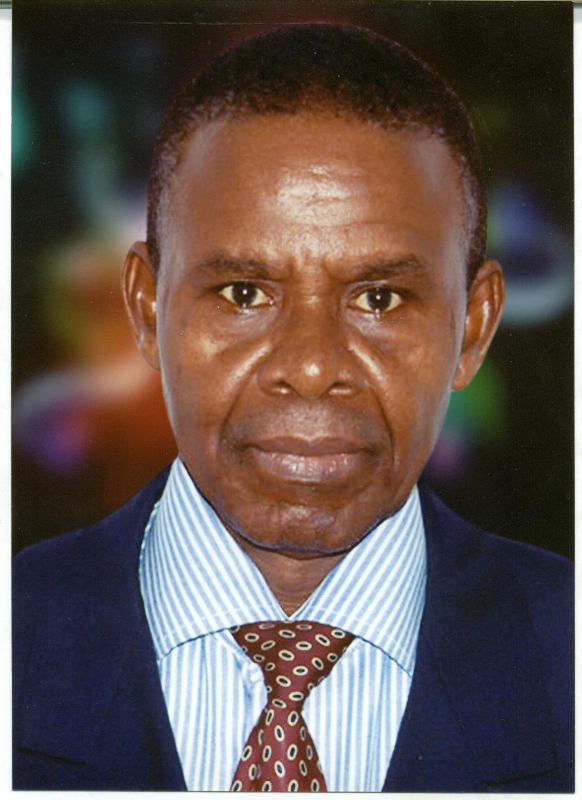

Mr. Nwafo
BY CHIMA NWAFO
Deforestation, desert encroachment, gully/soil erosion, flooding, oil pollution, climate change, greenhouse emission, destruction of wetlands and biodiversity. Put together, their cumulative impact amounts to land or environmental degradation. Man’s inability to appreciate this fact of life: that every social engagement or industrial activity that demeans and destabilizes the environment is a threat to the land, and consequently, life, including that of the perpetrator.
The headline is based on the above postulation of master environmentalist. “Land is life” is a translation of an Igbo name of his grandson, Anibundu. This could equally have passed like any other African name, but for the author of the thesis – octogenarian Dr Newton Chukwukadibia Jibunoh – a desert warrior, adventurer, environmentalist and the only Nigerian and, perhaps, few Africans to have climbed Mount Kilimanjaro. Now in his 80s, he is still active and mentally alert to write a column in Daily Sun. His knowledge of the subject of environment of is encyclopaedic. And it also brings to the fore the sad fact that some ecological concerns that have morphed to insecurity in the country, could be attributed to the failure of government to rise to the challenge as well as heed professional advice. For example, he easily points out a positive correlation between the problem of deforestation/desert encroachment and the Fulani herders-farmers’ clash, which has become a tense political issue. His words:
“If Nigeria had listened to me from year 2000 when I started talking about desert encroachment, we would not have been where we are today. The average nomadic Fulani is a wonderful animal husbandry person and that is their life. They do nothing else and they are very good at it. It is also a very profitable business for them. When they are at the age of 10-11, their parents give them five-male and five-female cows. By the time they are 20 years, they would have gotten thousands of cows; identify the aged ones, bring them by foot towards this axis for sale. They normally go through the East, West, pass through Sagamu, and then to Lagos, which is their final destination.

“As they are coming, they are getting rid of some and finally everything in Lagos; invest their money in Bureau De Change, and go back to their land. They practice shifting cultivation and that was the way they kept their greenery. A nomadic Fulani with a thousand cows, all he does is take his stick and take those cows to the grazing field in the morning and bring them back in the evening. It is what they use in maintaining their lives. They milk their cows, eat the meat and pass Sahara (desert) and make their own friends. But, suddenly the grazing fields have gone out, climate change and desertification. What is left for them is either to sit down and watch their animal die or look for greenery where to graze these animals. Unfortunately, most of the times, they tumble into people’s farms and the owners of the farmlands would fight back, because their farm produce is being destroyed.”
The question that naturally comes up is: If the federal and state governments had taken necessary actions to check desert encroachment 19 years ago, would the Fulani herdsmen have lost grazing areas to the extent of abandoning their land entirely? If efforts had been made to grow greenery by reclaiming land through tree-planting and afforestation programmes since 2015, could the extent of clashes not have been reduced? Besides, since herding is a multi-billion naira business, why can’t the Federal Government persuade the Miyetti cattle association leaders to seek a civilized way of grazing? Germany is world’s number one producer of beef, yet you don’t see cows parading their streets, as obtained in Nigeria.
As the world marked the 2019 UN day to combat Desertification, with the theme, Let’s Grow the Future together, a foreign environmental expert sounded similar warning as Pa Jibunoh’s.
Mr Pima Hoffman, Assistant Director, African Climate Reporters, a non-governmental organization, in a chat with the News Agency of Nigeria, said that increased irrational human activities, lack of commitment by member states towards combating desertification and soil erosion has a negative impact, and remains a serious threat to the existence of parks and game reserves across the (Africa) region.”
According to him, hunting and over exploitation of natural resources through various human activities like excessive fishing, cutting down of trees, mining activities has caused serious reduction and damages in the number of various plants and animals species in the forest.

“Many African forests today face serious extinction problems; this has brought about reduction of visiting tourists and archaeologists and other forestry experts from international countries to the region and the increase in insecurity.” These unwholesome activities, including bush-burning, illegal failing of trees, hunting, commercial wood business that guarantees production of charcoal which is unfortunately a popular source of energy for cooking in our urban centres, etc, have negative effect on the environment.
And as stated earlier with regards to the headline, Hoffmann noted that the foregoing “irrational human activities need to stop, if we wish to survive in this planet because, without forestry, no one will live in this earth.” And that is an essential part of our land resources, on which our life depends, even though many in our clime are ignorant of it.
Traditionally, Nigeria signs international pacts and participates in United Nations programmes such as the “Action Against Desertification, an initiative of the African, Caribbean and Pacific Group of States (ACP) with funding from the European Union (EU) and additional financing from Turkey, which operates in 11 countries: Burkina Faso, Eritrea, Ethiopia, Fiji, Gambia, Haiti, Mauritania, Niger, Nigeria, Senegal and Sudan.

“Together with the United Nations Environment Programme (UNEP), FAO will lead the recently declared 2021-2030 UN Decade on Ecosystems Restoration. “At the same time, FAO’s longstanding involvement in promoting best practices in dry lands restoration is bearing fruit – and Action Against Desertification is one of the most tangible outcomes,” as captured by Environment Nigeria.
These progammes make headlines but produce no tangible results. And Nigerians, including politicians, in and out of power, know the truth. But ironically, they feed fat on our nation’s failures, that is why no administration thinks outside the box in search of solution. Again, the desert warrior recalled: “It was nice to let them know how they could get over it; because of that I went back to Ben Gurion University in Israel to study the Science of Desertification. The whole of Israel was recovered from the desert and that is why they have a university specializing on how to get land reclamation. Having acquired that knowledge in Israel, I came back to Nigeria and decided to implement some of the science of desertification. So, I started helping communities in the desert encroached areas and those that live on the fringes of the desert.”
If an individual Niger Deltan Nigerian could go out of his way to seek solution to desert encroachment and land reclamation, what has the Federal Government and Sahel states with all the resources done?
Israelis did not begin by telling the world how many trees they had planted; the world first heard how deserts were converted to farm lands. We have heard so much about tree planting and afforestation, but no results to back up the political statements. Talk is cheap. But action speaks louder than voice.
*Nwafo, Veteran Copy Editor/Environmental Analyst, can be reached on: [email protected]; +23408029334754.
Share your story or I Witness Reports with us 24/7
via: SMS: +234 (0)9076248001
Whatsapp: +234(0)8072022024, Email: [email protected]
Website: www.gatmash.com
For advert placement, contact us today via email: [email protected] or call our hotlines on Tel: +234(0)8072022024, 08166622444, 09076248001





